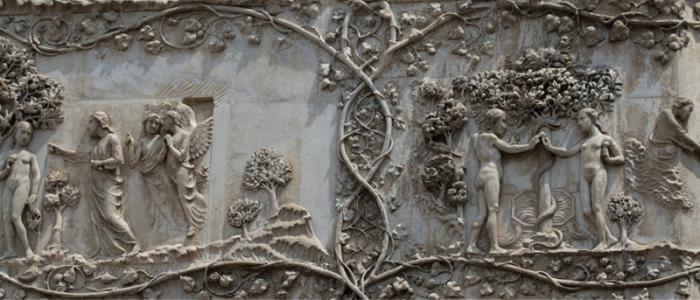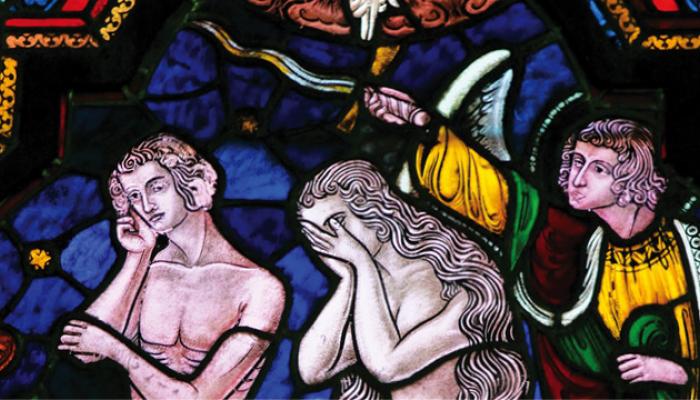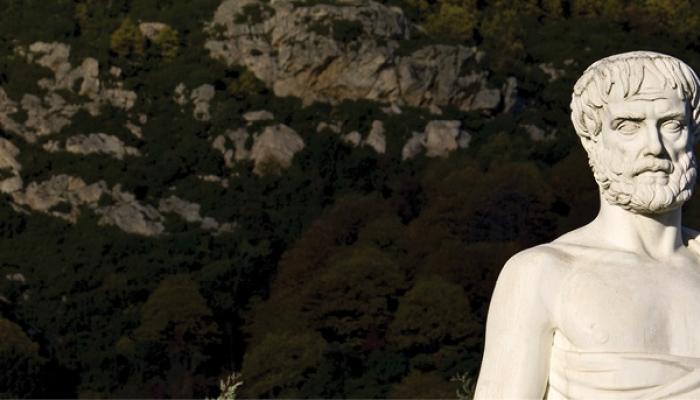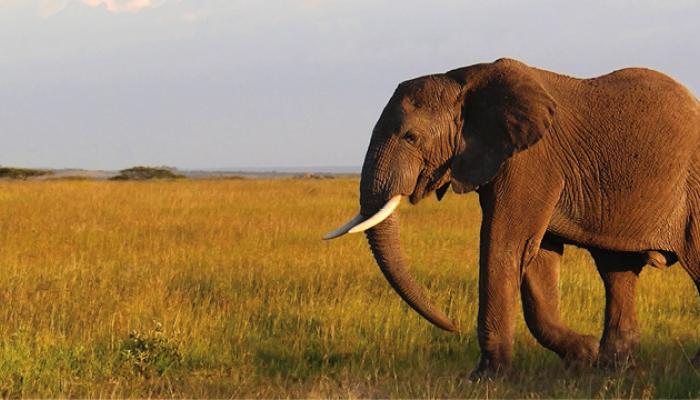
1.2 Even serieus: is dat Adam-en-Eva-gedoe echt gebeurd?
Het verhaal van de schepping van Adam en Eva is geen exact verslag. Wel vertelt het veel over de verhouding van mensen met God en elkaar. God heeft goed nagedacht over de schepping: we zijn gemaakt volgens een plan. Hij heeft als het ware zijn vingerafdruk in ons achtergelaten, waardoor we op Hem lijken (Gen 1,26) Gen 1,26: En God zei: ‘Nu gaan Wij de mens maken, als beeld van Ons, op Ons gelijkend; hij zal heersen over de vissen van de zee, over de vogels van de lucht, over de tamme dieren, over alle wilde beesten en over al het gedierte dat over de grond kruipt.’.
Daarom hebben we een unieke plaats in de schepping, die samengaat met de opdracht om voor de hele schepping te zorgen. God heeft ons geschapen omdat Hij van ons houdt. Omdat we naar zijn beeld, op hem gelijkend zijn gemaakt, hebben we allemaal in onszelf een verborgen verlangen naar God. Op onze beurt kunnen we houden van God en onze medemensen.
Heeft de mens een aparte plaats in de schepping?
Ja. De mens is het hoogtepunt van de schepping, omdat God hem naar zijn beeld (Gen. 1, 27) geschapen heeft.
De schepping van de mens is duidelijk onderscheiden van de schepping van andere levende wezens. De mens is persoon, dat wil zeggen, hij kan met wil en verstand voor of tegen de liefde kiezen. [Youcat 56]
What does the seventh commandment require?
The seventh commandment requires respect for the goods of others through the practice of justice and charity, temperance and solidarity. In particular it requires respect for promises made and contracts agreed to, reparation for injustice committed and restitution of stolen goods, and respect for the integrity of creation by the prudent and moderate use of the mineral, vegetable, and animal resources of the universe with special attention to those species which are in danger of extinction. [CCCC 506]
How should we treat the environment?
We fulfill God’s commission with regard to creation when we care for the earth, with its biological laws, its variety of species, its natural beauty, and its dwindling resources, as a living space and preserve it, so that future generations also can live well on earth.
In the book of Genesis, God says, “Be fruitful and multiply, and fill the earth and subdue it; and have dominion over the fish of the sea and over the birds of the air and over every living thing that moves upon the earth” (Gen 1:28). Having “dominion over the earth” does not mean having an absolute right to dispose arbitrarily of animate and inanimate nature, animals, and plants. Because man is created in God’s image, he should care for God’s creation as a shepherd and steward. For the first book of the Bible also says, “The Lord God took the man and put him in the garden of Eden to till it and keep it” (Gen 2:15). [Youcat 436]
How should we treat animals?
Animals are our fellow creatures, which we should care for and in which we should delight, just as God delights in their existence.
Animals, too, are sentient creatures of God. It is a sin to torture them, to allow them to suffer, or to kill them uselessly. Nevertheless, man may not place love of animals above love of man. [Youcat 437]
What is the importance of affirming “In the beginning God created the heavens and the earth” (Genesis 1:1)?
The significance is that creation is the foundation of all God’s saving plans. It shows forth the almighty and wise love of God, and it is the first step toward the covenant of the one God with his people. It is the beginning of the history of salvation which culminates in Christ; and it is the first answer to our fundamental questions regarding our very origin and destiny. [CCCC 51]
Does science make the Creator superfluous?
No. The sentence “God created the world” is not an outmoded scientific statement. We are dealing here with a theo-logical statement, therefore a statement about the divine meaning (theos = God, logos = meaning) and origin of things.
The creation account is not a scientific model for explaining the beginning of the world. “God created the world” is a theological statement that is concerned with the relation of the world to God. God willed the world; he sustains it and will perfect it. Being created is a lasting quality in things and a fundamental truth about them. [Youcat 41]
Who created the world?
God alone, who is beyond time and space, created the world out of nothing and called all things into being. Everything that exists depends on God and continues in being only because God wills it to be.
The creation of the world is, so to speak, a “community project” of the Trinitarian God. The Father is the Creator, the Almighty. The Son is the meaning and heart of the world: "All things were created through him and for him” (Col 1:16). We find out what the world is good for only when we come to know Christ and understand that the world is heading for a destination: the truth, goodness, and beauty of the Lord. The Holy Spirit holds everything together; He is the one “that gives life” (Jn 6:63). [Youcat 44]
Why does the Book of Genesis depict creation as “the work of six days”?
The symbol of the work week, which is crowned by a day of rest (Gen 1:1—2:3), is an expression of how good, beautiful, and wisely ordered creation is.
From the symbolism of “the work of six days” we can derive important principles: (1) Nothing exists that was not called into being by the Creator. (2) Everything that exists is good in its own way. (3) Something that has become bad still has a good core. (4) Created beings and things are interrelated and interdependent. (5) Creation in its order and harmony reflects the surpassing goodness and beauty of God. (6) In creation there is an order of complexity: man is superior to an animal, an animal is superior to a plant, a plant is superior to inanimate matter. (7) Creation is heading for the great celebration when Christ will bring the world home and God will be everything to everyone. [Youcat 46]
Why did God rest on the seventh day?
God’s rest from his work points toward the completion of creation, which is beyond all human efforts.
Although man in his work is the junior partner of his Creator (Gen 2:15), he can by no means redeem the world by his toil. The goal of creation is “new heavens and a new earth” (Is 65:17) through a redemption that is given to us as a gift. Thus the Sunday rest, which is a foretaste of heavenly rest, is superior to the work that prepares us for it. [Youcat 47]
Why did God create the world?
“The world was made for the glory of God.”
(First Vatican Council)
There is no other reason for creation than love. In it God’s glory and honor appears. To praise God, therefore, does not mean applauding the Creator. After all, man is not a spectator to the work of creation. For him, “praising” God means being grateful for his own existence together with all creation. [Youcat 48]
If we comprehend faithfully and wisely the beginning of our creation, we shall find that man was made in God's image, to the end that he might imitate his Creator, and that our race attains its highest natural dignity, by the form of the Divine goodness being reflected in us, as in a mirror. And assuredly to this form the Saviour's grace is daily restoring us, so long as that which in the first Adam fell, is raised up in the second. [St. Leo the Great, Sermons, No. 12:1 (ML 54, 168)]
The symbolic language of the Bible tells us that before exiling them from the Garden of Eden, God made for man and woman garments of skins, and clothed them (cf. Gn 3:21). This act of tenderness means that in the painful consequences of our sin, God does not want us to be left naked and abandoned to our fate as sinners. [Pope Francis, General Audience 16 Sept. 2015]





